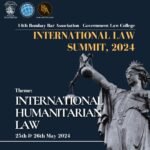DU LLB / BHU/ Other Entrance Exam Study Material- Law of Torts
DU LLB /BHU LLB Entrance Study Material 2021
The word tort has been derived from the Latin term ‘tortum’, which means ‘to twist’. It includes that conduct which is not straight or lawful, but, on the other hand, twisted, crooked or unlawful.
Salmond: “A tort is a civil wrong for which the remedy is an action for damages and which is not exclusively the breach of contract or the breach of trust or breach of merely equitable obligation”.
Winfield: Tortious liability arises from the breach of a duty primarily fixed by the law; this duty is towards the persons generally and its breach is redressible by an action for unliquidated damages.”
Clark and Lindsell: “Tort is a wrong independent of contract for which the appropriate remedy is a common law action.”
Fraser: “A tort is an infringement of right on rem of a private individual giving a right of compensation at the suit of the injured
party.”
Section 2(m), the Limitation Act, 1963: “Tory means a civil wrong is not exclusively a breach of contract or breach of trust.”
- Intentional or Accidental – Civil Wrong
- Cause injury/harm to another person – Person may ask for compensation for damages
- Tort – Unliquidated Damages i.e. damages not decided initially
- Compensation – money or some other liability
eg. Physical Injury, Mental Injury, Defamation, Nuisance, Property Damage, Trespass, Negligence, etc.
Tort – Injury or Harm caused to a person in which compensation was not initially decided because it was not already expected like in a contract where compensation is initially decided
Tort and Crime – Assault, Defamation, Negligence, Conspiracy, Nuisance, Mischief, Theft
Tort and Breach of Contract – Any one party of the two parties breaks the contract and compensation is given to other party on basis of situation
Right in Rem – Right/Duties of person towards the world instead of a specific individual
Right in Personam – Right/Duties of person towards the specific individual instead of the world (opposite of – Right in Rem)
Law of Torts – Deals with Legal Injuries
i.e. violation of legal right
Sources of Tort Law
Based on Common Law System i.e. Precedent (past judicial decisions)
Inuria Sine Damno – Person has suffered legal injury without actual damage
i.e. Violation of legal right
Note: Person has suffered loss (must)
Asbhy vs. White (case) – Officer refused to take vote of a person but that candidate won so there was no actual loss by refusal of vote but person suffered legal injury i.e. It’s a Tort
Damnum Sine Injuria – If no violation of legal right then person is not actionable
i.e. Person has suffered damage but without any legal injury therefore no tort
Note: Violation of legal right must take place in Tort
Negligence – Person fails to take care
Defamation – There is no physical damage
Defense in Torts
- Volenti Non Fit Injuria – Harm is done voluntarily on the plaintiff which he/she has agreed upon (no tort)
eg. Footballer gets injured by another footballer in match (no tort – because both agreed voluntarily before the match) Note: Rescue Operations – exception to Volenti Non Fit Injuria - Plaintiff the Wrong Doer – Plaintiff trespasses a property and gets injured due to a dog Plaintiff gets compensation – if no board of ‘Beware of Dogs’ was put outside Plaintiff gets no compensation – if board of ‘Beware of Dogs’ was put outside i.e. mistake of plaintiff (no tort)
- Inevitable Accident – Accident which can’t be prevented (no tort)
- Act of God – Natural forces of extreme nature without human intervention (no tort)
- Private Defense – Self Defense (no tort)
- Doctors have to perform dangerous operation to save life even though there are chances that operation might not be successful (no tort)
- Honest Mistake – (no tort)
- Action by Statutory Authority – (no tort)
Also Read: IPC case law for Preliminary exam as well as Mains Judicial Services
Kinds of Torts
Trespass on Person
Battery – Defendant touches Plaintiff to cause harm
Assault – Defendant try to bring Plaintiff in fear with intention of causing harm
False Imprisonment – Defendant locks the Plaintiff in a room intentionally i.e. Plaintiff is locked (imprisoned) in an area unlawfully
Trespass on Property
- Trespass to land unlawfully i.e. cross or damage the property
- Trespass to chattels (movable property) unlawfully i.e. damage or misuse movable property and decrease its value eg. Defendant damages Plaintiff’s car
Other
- Nuisance – interference with property/person
- Defamation – injury to reputation (third person i.e. other than defamed person must know about it)
- Libel – Injury to reputation in form of writing or picture i.e. Libel – addressed to eye
- Slander – Injury to reputation in form of spoken words or gestures i.e. Slander – addressed to ear
Absolute Privileges – Parliamentary proceedings and Judicial proceedings (no defamation – no tort)
Qualified Privileges – Statement made in Judicial orders (no defamation – no tort)
- Negligence i.e failure to take care that resulted in loss
Duty of care not performed by Defendant
Breach of duty of care done by Defendant
Harmed caused to Plaintiff
General Rule – Proof of Negligence
i.e. lie heavily on Plaintiff that Defendant was negligent
Special Cases – Burden of proof lie on Defendant to prove his innocence i.e. Res Ipsa Loquitor – thing speaks for itself
Vicarious Liability – Liability of one person for the act done by another
Qui Facit Per Alium Facit Per Se – Principal is liable for the wrong act of his Agent i.e. Respondent Superior – Master is liable for the act of his Servant
Strict Liability – Carelessness performed by an object or animal of the Defendant eg. Dog bites a person – Master of the dog is liable Case – Rylands vs. Fletcher (by – Justice Blackburn) Decision – Person who has anything that causes mischief then on prima-facie owner of that thing which caused damage is liable
Absolute Liability – Enterprise (factory) causes health problems eg. Toxic gases released by an enterprise/factory affect people and cause health problems then enterprise is liable for compensation to affected people
Case – Rylands vs. Fertilizer Decision – Deep Pocket Theory i.e. larger the enterprise then greater the compensation amount accordingly
Defamation – Damaging the reputation of a person in eyes of others
- Libel – Permanent (written)
- Slander – Temporary (spoken)
Essentials for Defamation:
- Statement must be defamatory
- Statement must refer to plaintiff
- Statement must be published
Negligence – Breach of duty to take care
Requirements for Negligence:
- There should be a duty to take care
- Breach of duty
- Result in actual damage/harm
Res Ipsa Loquitur – Thing speaks for itself Note: Burden of proof is on defendant
No Fault Liability:
- Vicarious Liability (more defenses)
- Master and Servant Principal and
- Agent Partners and Contract
DU LLB Application form 2021: Click here




![Call for Campus Ambassadors by Our Legal World [2 Months; Virtual]: Apply by June 15](https://www.ourlegalworld.com/wp-content/uploads/2024/06/Logo-New-136x150.png)


